Psychoanalytic Studies
Earn CE Credits Online in Psychoanalytic Theory and Technique—Customize Your Learning Experience
The Center for Psychoanalytic Studies @ William James College is an exciting online CE "fellowship" program specifically designed to bring together all licensed mental health professionals interested in pursuing an innovative and rigorous course of study in psychoanalytic psychotherapy with a distinguished national and international faculty.
The focus will be on interweaving the most current theoretical advances in psychoanalytic thought with best practices in the clinical domain.
Our state-of-the-art training model will allow students from anywhere in the world and from the comfort of their own offices/homes to participate in these enriching and stimulating continuing education activities taught by our Distinguished Psychoanalytic Faculty.
Students will have the opportunity to customize their own learning experience by combining one or both of our intensive Core Courses (18 CE Credits each) with a broad range of exceptional Luminary Lectures (1 CE Credit each), as described below.
Under the direction of Martha Stark, MD, and Andrea Celenza, PhD
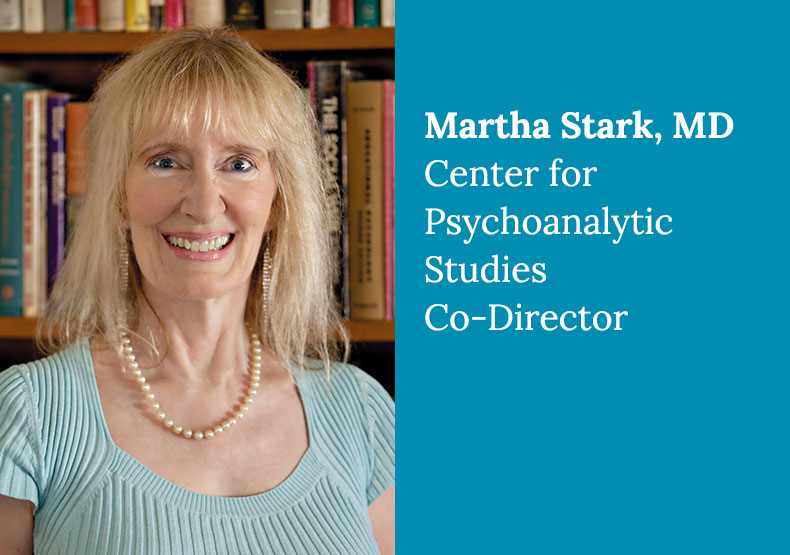
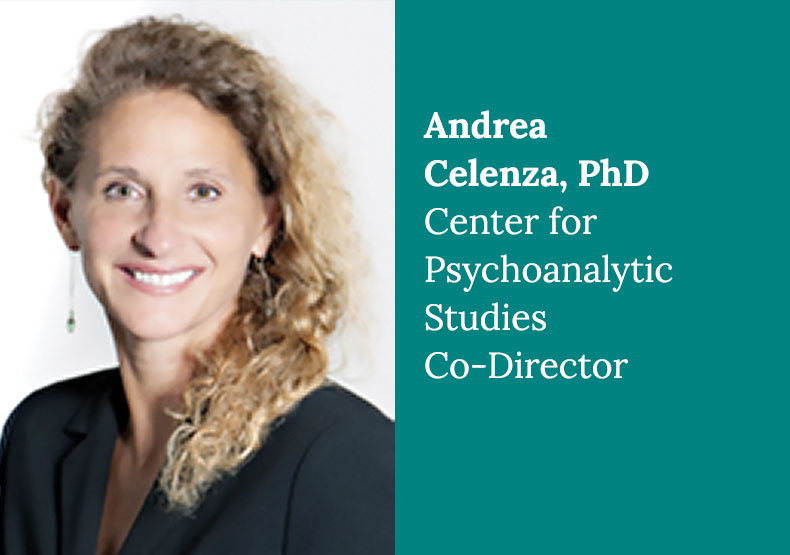
DISTINGUISHED FACULTY INCLUDE: Salman Akhtar, MD; Lew Aron, PhD; Beatrice Beebe, PhD; Jessica Benjamin, PhD; Patrick
Casement, MA; Andrea Celenza, PhD; Darlene Bregman Ehrenberg, PhD; Glen O. Gabbard,
MD; Jay R. Greenberg, PhD; Adrienne Harris, PhD; Frank Lachmann, PhD; Edgar A. Levenson,
MD; Joseph Lichtenberg, MD; Karlen Lyons-Ruth, PhD; Nancy McWilliams, PhD; Allan N.
Schore, PhD; Evelyne A. Schwaber, MD; Martha Stark, MD; Donnel Stern, PhD; and Drew
Westen, PhD
Academic Year (September-June) Core Courses
Each month-long, 18-CE credit course includes four one-hour record lectures viewed online with corresponding readings available to students 24/7. In addition, each Course will be accompanied by ongoing online “threaded discussions” facilitated by the Instructor and a final one-hour Q&A “live” webinar. Open the tabs below for details on each Core Course.
Friday, October 6 - Friday, November 3, 2023
Martha Stark, MD, Instructor
Martha will be presenting an action-based, solution-focused, future-oriented psychodynamic model that conceives of the mind as holding infinite potential and of memory as dynamic and continuously updating itself on the basis of new experience (whether real or simply envisioned). A constructivist perspective at heart, her freshly minted Model 5 is an innovative and exciting approach to healing that is informed by the groundbreaking neuroscientific discovery that when traumatic memories are reactivated in an embodied fashion, the network of synapses encoding those memories will become deconsolidated for a time-limited period. This unlocking will create the opportunity for both rewiring the brain and reprogramming the mind by way of therapeutic memory reconsolidation.
More specifically, the repeated juxtaposition of “old bad” learned expectations with “new good” envisioned possibilities will create decisive – and potentially transformational – mismatch experiences. If these mismatch experiences are repeated often enough, forcefully enough, and dramatically enough within the critical time frame of four to six hours, then the ongoing violations of expectation will eventually trigger energetic decoupling of the client’s toxic past from her present and therapeutic reconsolidation of the client’s narratives from outdated and disempowering to updated and more empowering.
Capitalizing upon the brain’s remarkable neuroplasticity, Martha’s quantum-neuroscientific Model 5 features co-created quantum disentanglement statements designed to release the client from her past as she envisions new possibilities for the future, takes ownership of her need therefore to change, and then commits to acting in alignment with that imperative going forward.
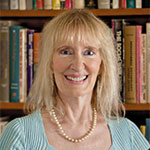 Martha Stark, MD, Faculty, Harvard Medical School; CEO, SynergyMed for MindBodyHealth; Adjunct Faculty,
Smith College School for Social Work; Former Faculty, Boston Psychoanalytic Institute
and Massachusetts Institute for Psychoanalysis. Award-winning Author: Working with Resistance; A Primer on Working with Resistance; Modes of Therapeutic
Action; The Transformative Power of Optimal Stress; How Does Psychotherapy Work?;
Psychotherapeutic Moments; Relentless Hope; A Heart Shattered, The Private Self, and
A Life Unlived; Understanding Life Backward but Living It Forward. She is Co-Director (with Andrea Celenza, PhD) of the Center for Psychoanalytic Studies.
Martha Stark, MD, Faculty, Harvard Medical School; CEO, SynergyMed for MindBodyHealth; Adjunct Faculty,
Smith College School for Social Work; Former Faculty, Boston Psychoanalytic Institute
and Massachusetts Institute for Psychoanalysis. Award-winning Author: Working with Resistance; A Primer on Working with Resistance; Modes of Therapeutic
Action; The Transformative Power of Optimal Stress; How Does Psychotherapy Work?;
Psychotherapeutic Moments; Relentless Hope; A Heart Shattered, The Private Self, and
A Life Unlived; Understanding Life Backward but Living It Forward. She is Co-Director (with Andrea Celenza, PhD) of the Center for Psychoanalytic Studies.
18 CE Credits | $525
Register Online
Online: Coming in 2023
Andrea Celenza, PhD, instructor
This course, designed for students, teachers and practitioners, traces the history of psychoanalytic theorizing and technique from classical positivist, one-person conceptualizations to a relational, two-person, intersubjective engagement and beyond, including contemporary perspectives on field theory. This trajectory is designed to highlight selected basic concepts from both classical and contemporary perspectives, examining the epistemological underpinnings of each as psychoanalytic theorizing is transformed throughout its history. Each topic is covered from an historical vantage point to establish a foundation of the concept as it was originally conceived. Then these concepts are reformulated through a postmodern lens with a resultant discussion of the changes that ensued due to the transformations of theory and technique.
Readings have been selected that represent seminal moments in the history of psychoanalytic thinking, marking a turning point, or an elaboration of the concept. By studying the watershed shifts that have occurred in psychoanalytic theorizing, participants will be able to evolve their practice of psychoanalytic psychotherapy to a higher, more sophisticated level, broadening and deepening their clinical practice. Instructors and supervisors will be able to teach psychoanalytic technique and practice from a well-rounded and broad perspective. Participants are also exposed to the most contemporary thinking in analytic practice (field theory) as developments around the world have enriched psychoanalytic practice.
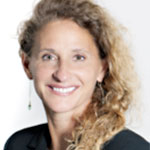 Andrea Celenza, PhD, Assistant Clinical Professor, Harvard Medical School; Training/Supervising Analyst
and Faculty, Boston Psychoanalytic Society and Institute and Massachusetts Institute
for Psychoanalysis. Author, Erotic Revelations: Clinical Applications and Perverse Scenarios (2014) and Sexual Boundary Violations: Therapeutic, Supervisory and Academic Contexts (2007). She is Co-Director (with Martha Stark, MD) of the Center for Psychoanalytic
Studies.
Andrea Celenza, PhD, Assistant Clinical Professor, Harvard Medical School; Training/Supervising Analyst
and Faculty, Boston Psychoanalytic Society and Institute and Massachusetts Institute
for Psychoanalysis. Author, Erotic Revelations: Clinical Applications and Perverse Scenarios (2014) and Sexual Boundary Violations: Therapeutic, Supervisory and Academic Contexts (2007). She is Co-Director (with Martha Stark, MD) of the Center for Psychoanalytic
Studies.
18 CE Credits | $525
2022-2023 Luminary Lectures
An exciting array of one-hour video presentations, available online with open enrollment. 2022-2023 Luminary Lectures are available November 30, 2022 through June 30, 2023. Each carries one CE credit, and is delivered by an esteemed thought leader in psychoanalytic psychotherapy. Open the tabs below for details on each lecture.
Mutual Vulnerability: An Ethic of Clinical Practice
This one-hour online presentation is taught by Lew Aron, PhD, a faculty member in our Luminary Series, and represents a distillate of his current thinking about the interface between psychoanalytic constructs and the application of those theoretical concepts to the clinical situation.
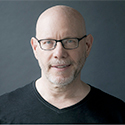 Lew Aron, PhD, The William James College community is saddened by the untimely passing of Lew Aron
(1952-2019). Dr. Aron served as a Distinguished Faculty and Visiting Scholar at our
college in our Center for Psychoanalytic Studies under the leadership of Drs. Martha
Stark and Andrea Celenza. His online lecture on “Mutual Vulnerability: An Ethic of
Clinical Practice” is a highly valued and thought provoking contribution to psychoanalytic
thought. We all valued Lew for his innovative thinking, his mastery as a teacher,
as a clinician and as a leader in training and education. His lecture is part of our
Luminary Series. This idea of Lew as a luminary is such an apt designation as he brought
light and understanding to his patients, students and colleagues. He is dearly missed.
Lew Aron, PhD, The William James College community is saddened by the untimely passing of Lew Aron
(1952-2019). Dr. Aron served as a Distinguished Faculty and Visiting Scholar at our
college in our Center for Psychoanalytic Studies under the leadership of Drs. Martha
Stark and Andrea Celenza. His online lecture on “Mutual Vulnerability: An Ethic of
Clinical Practice” is a highly valued and thought provoking contribution to psychoanalytic
thought. We all valued Lew for his innovative thinking, his mastery as a teacher,
as a clinician and as a leader in training and education. His lecture is part of our
Luminary Series. This idea of Lew as a luminary is such an apt designation as he brought
light and understanding to his patients, students and colleagues. He is dearly missed.
1 CE Credit | $25
Working at the Intimate Edge
This one-hour online presentation is taught by Darlene Bregman Ehrenberg, a faculty member in our Luminary Series and represents a distillate of her current thinking about the interface between psychoanalytic constructs and the application of those theoretical concepts to the clinical situation.
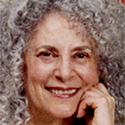 Darlene Bregman Ehrenberg, PhD, Author, The Intimate Edge: Extending The Reach Of Psychoanalytic Interaction; Training and Supervising Analyst, and teaching Faculty, William Alanson White Institute,
Supervising analyst and Adjunct Clinical Associate Professor, The New York University
Postdoctoral Program in Psychoanalysis, Faculty, Mitchell Center for Psychoanalysis,
Supervising analyst Institute for Contemporary Psychoanalysis, Los Angeles, California;
Editorial Board, Contemporary Psychoanalysis, and Associate Editor, Psychoanalytic
Dialogues.
Darlene Bregman Ehrenberg, PhD, Author, The Intimate Edge: Extending The Reach Of Psychoanalytic Interaction; Training and Supervising Analyst, and teaching Faculty, William Alanson White Institute,
Supervising analyst and Adjunct Clinical Associate Professor, The New York University
Postdoctoral Program in Psychoanalysis, Faculty, Mitchell Center for Psychoanalysis,
Supervising analyst Institute for Contemporary Psychoanalysis, Los Angeles, California;
Editorial Board, Contemporary Psychoanalysis, and Associate Editor, Psychoanalytic
Dialogues.
1 CE Credit | $25
My Psychoanalytic Journey: A Retrospective
This one-hour online presentation is taught by Patrick Casement, a faculty member in our Luminary Series, and represents a distillate of his current thinking about the interface between psychoanalytic constructs and the application of those theoretical concepts to the clinical situation.
A highly personal account of my journey as a psychoanalytic therapist and psychoanalyst will be offered. The interweaving of my personal history along with my career development will depict the various challenges and transformations that made me the clinician and writer I am today. Case material in anecdotal form and via clinical formulation will be included as pertinent. A trajectory will be traced that follows the ways in which I developed, what I embraced and what I rejected in order to bring to the fore what I believe to be the fundamental principles and values of a psychoanalytic psychotherapist.
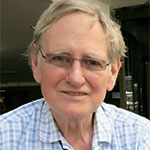 Patrick Casement, Author, Learning from the Patient, Learning from our Mistakes, and Learning from Life and others. Patrick Casement is one of the most influential psychoanalysts of this
past century. Allied with the British Independents who place relationships, humanity, and an anti-dogmatic attitude at the heart of psychoanalytic
work, Casement offers a personal and emotional account of his journey in as a psychoanalyst
with unusual honesty and humility. Associate of the International Psychoanalytic Association,
Fellow of the Institute of Psychoanalysis (London), Training analyst (retired) of
the British Psychoanalytic Society.
Patrick Casement, Author, Learning from the Patient, Learning from our Mistakes, and Learning from Life and others. Patrick Casement is one of the most influential psychoanalysts of this
past century. Allied with the British Independents who place relationships, humanity, and an anti-dogmatic attitude at the heart of psychoanalytic
work, Casement offers a personal and emotional account of his journey in as a psychoanalyst
with unusual honesty and humility. Associate of the International Psychoanalytic Association,
Fellow of the Institute of Psychoanalysis (London), Training analyst (retired) of
the British Psychoanalytic Society.
1 CE Credit | $25
Contrasting Psychodynamic Approaches to Hysterical and Obsessive-Compulsive Personalities
This one-hour online presentation is taught by Glen O. Gabbard, MD, a faculty member in our Luminary Series, and represents a distillate of his current thinking about the interface between psychoanalytic constructs and the application of those theoretical concepts to the clinical situation.
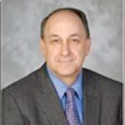 Glen O. Gabbard, MD, Clinical Professor of Psychiatry, Baylor College of Medicine in Houston; Professor
of Psychiatry, SUNY Upstate Medical University in Syracuse; Training and Supervising
Analyst, Center for Psychoanalytic Studies in Houston.
Glen O. Gabbard, MD, Clinical Professor of Psychiatry, Baylor College of Medicine in Houston; Professor
of Psychiatry, SUNY Upstate Medical University in Syracuse; Training and Supervising
Analyst, Center for Psychoanalytic Studies in Houston.
1 CE Credit | $25
Contributions of Infant Research to Adult Treatment: Development and Therapeutic Action
This one-hour online presentation is taught by Frank Lachmann, PhD, a faculty member in our Luminary Series, and represents a distillate of his current thinking about the interface between psychoanalytic constructs and the application of those theoretical concepts to the clinical situation.
From the empirical studies of mother infant dyads, three principles of organizing experience have been reaped that have life-long applicability. These principles describe how from birth on what we represent and what we remember, how we feel and how we behave are derived from experiences that are co-created by our self in relation to others. When our understanding of early development, transference, and the organization of the mind are applied to psychotherapy we require and acquire a broader conceptual and therapeutic perspective that integrates these principles into effective therapeutic technique.
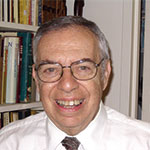 Frank M. Lachmann, PhD, is a founding faculty member of the Institute for the Psychoanalytic Study of Subjectivity;
Training and Supervising Analyst, Postgraduate Center for Mental Health; and Clinical
Assistant Professor at the NYU Postdoctoral Program in Psychotherapy and Psychoanalysis.
He has contributed over 100 articles to the journal literature and is author of Transforming Aggression and co-author of Self and Motivational Systems, The Clinical Exchange, and Infant Research and Adult Treatment.
Frank M. Lachmann, PhD, is a founding faculty member of the Institute for the Psychoanalytic Study of Subjectivity;
Training and Supervising Analyst, Postgraduate Center for Mental Health; and Clinical
Assistant Professor at the NYU Postdoctoral Program in Psychotherapy and Psychoanalysis.
He has contributed over 100 articles to the journal literature and is author of Transforming Aggression and co-author of Self and Motivational Systems, The Clinical Exchange, and Infant Research and Adult Treatment.
1 CE Credit | $25
Narrative, Meaning and Motivation: From Theory to Technique
This one-hour online presentation is taught by Joseph D. Lichtenberg, MD, a faculty member in our Luminary Series, and represents a distillate of his current thinking about the interface between psychoanalytic constructs and the application of those theoretical concepts to the clinical situation.
The lecture will present an expanded view of the role of narrative as a fundamental building block of development and assert that infants form mini-stories from their lived experience. The role of narratives, stories and story-telling will be applied to clinical practice.
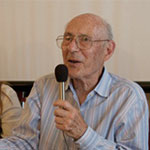 Joseph D. Lichtenberg, MD, is Editor-in-Chief of Psychoanalytic Inquiry, Director Emeritus of the Institute
of Contemporary Psychotherapy and Psychoanalysis, past President of the International
Council for Psychoanalytic Self Psychology, and member of the Program Committee of
the American Psychoanalytic Association. He has authored and edited numerous books
and articles, including Craft and Spirit: A Guide to the Exploratory Psychotherapies and Sensuality and Sexuality across the Divide of Shame.
Joseph D. Lichtenberg, MD, is Editor-in-Chief of Psychoanalytic Inquiry, Director Emeritus of the Institute
of Contemporary Psychotherapy and Psychoanalysis, past President of the International
Council for Psychoanalytic Self Psychology, and member of the Program Committee of
the American Psychoanalytic Association. He has authored and edited numerous books
and articles, including Craft and Spirit: A Guide to the Exploratory Psychotherapies and Sensuality and Sexuality across the Divide of Shame.
1 CE Credit | $25
Creativity in Psychotherapy: An Adaptive Function of the Right Brain Unconscious
This one-hour online presentation is taught by Allan N. Schore, PhD, a faculty member in our Luminary Series, and represents a distillate of his current thinking about the interface between psychoanalytic constructs and the application of those theoretical concepts to the clinical situation.
Neuroscience authors are now contending that the capacity of humans to be creative is revealed whenever we generate original ideas, develop novel solutions to problems, or express ourselves in a unique and individual manner. A large body of studies now shows that the right brain is central in these functions. Dr.Schore will offer an interpersonal neurobiological model of creativity in the psychotherapeutic context, in both patient and therapist. As examples he will describe the critical role of the clinician’s right brain creativity when working with affects, especially in joint enactments, in spontaneous play and co-creativity in the processing of novel interpersonal information within the therapeutic alliance, in the patient’s expanding tolerance for interpersonal novelty and psychotherapeutic change, and in the development of therapeutic expertise.
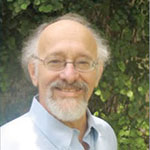 Allan N. Schore, PhD, is on the clinical faculty of the Department of Psychiatry and Biobehavioral Sciences,
UCLA David Geffen School of Medicine, and at the UCLA Center for Culture, Brain, and
Development. He is the author of four seminal volumes: Affect Regulation and the Origin of the Self; Affect Dysregulation and Disorders of
the Self; Affect Regulation and the Repair of the Self; and The Science of the Art of Psychotherapy, as well as numerous articles and chapters.
Allan N. Schore, PhD, is on the clinical faculty of the Department of Psychiatry and Biobehavioral Sciences,
UCLA David Geffen School of Medicine, and at the UCLA Center for Culture, Brain, and
Development. He is the author of four seminal volumes: Affect Regulation and the Origin of the Self; Affect Dysregulation and Disorders of
the Self; Affect Regulation and the Repair of the Self; and The Science of the Art of Psychotherapy, as well as numerous articles and chapters.
1 CE Credit | $25
Relational Freedom
This one-hour online presentation is taught by Donnel Stern, PhD, a faculty member in our Luminary Series, and represents a distillate of his current thinking about the interface between psychoanalytic constructs and the application of those theoretical concepts to the clinical situation.
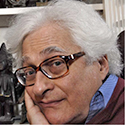 Donnel Stern, PhD, Training and Supervising Analyst, Teaching Faculty, William Alanson White Institute
of Psychiatry, Psychoanalysis and Psychology, New York City; Adjunct Clinical Professor
and Clinical Consultant, New York University Postdoctoral Program in Psychotherapy
and Psychoanalysis; Founder and Editor, "Psychoanalysis in a New Key" Book Series;
Board of Directors, International Association of Relational Psychoanalysis and Psychotherapy.
Donnel Stern, PhD, Training and Supervising Analyst, Teaching Faculty, William Alanson White Institute
of Psychiatry, Psychoanalysis and Psychology, New York City; Adjunct Clinical Professor
and Clinical Consultant, New York University Postdoctoral Program in Psychotherapy
and Psychoanalysis; Founder and Editor, "Psychoanalysis in a New Key" Book Series;
Board of Directors, International Association of Relational Psychoanalysis and Psychotherapy.
1 CE Credit | $25
